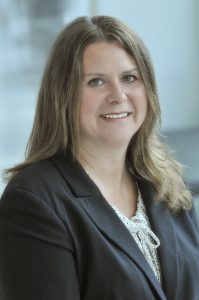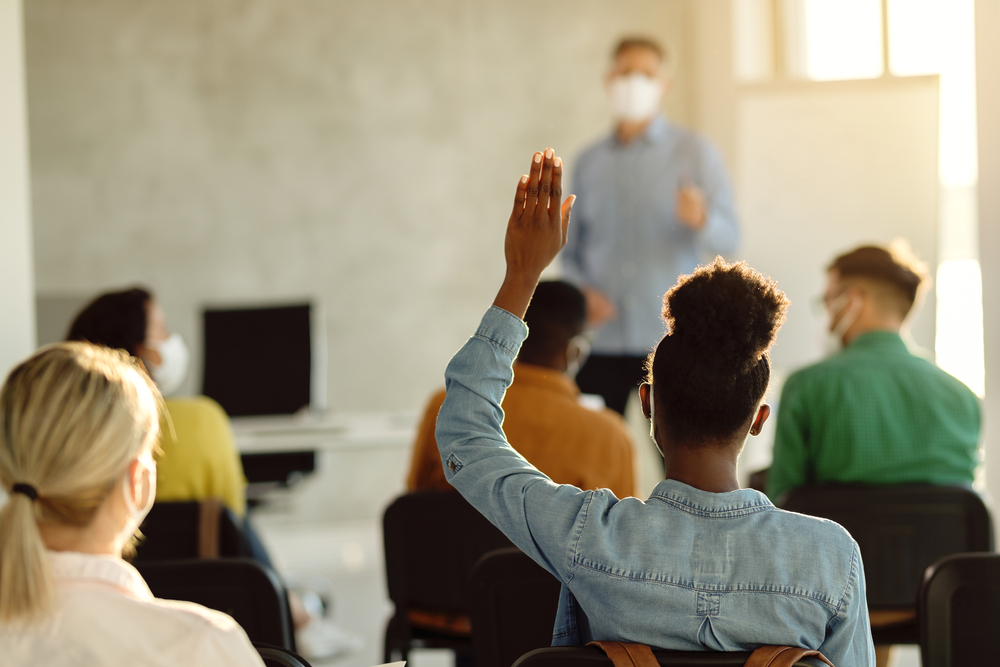Learning theory is a critical part of a college education. Understanding the “why” unlocks unlimited possibilities for knowledge and career exploration.
Once the groundwork is laid, learning by doing becomes increasingly important in taking the next step. Engaging in activities such as collaborating in a professional workspace (in-person or via Zoom), live client consulting and real-world problem-solving helps prepare students for the workforce. A workforce that, if the past year has taught us anything, is ever-changing.
With the creation of the Fox Strategic Plan 2025, being innovative in Experiential Learning has come front and center in the school’s mission and approach to curricula. We interviewed Misty Blessley, director of Experiential Learning and assistant professor of instruction in Marketing and Supply Chain Management (MSCM) to talk about Experiential Learning as an important strategic initiative for the Fox School.
How has the mission of Experiential Learning changed over the years?

I feel that Experiential Learning is a way of educating students, outside of the more passive approach of learning from reading a textbook or attending a lecture. It’s more about jumping in and being hands-on and getting involved with real-life questions.
It’s really important to accompany a textbook theory with real-world experiences. Students are expected to be able to walk out into the job market and perform, and one way of doing that is to test the theory and actually be able to move through the applications. That’s what Experiential Learning is about. A student does not always need to be fully immersed on his or her own. For example, students can learn by seeing how a series of others might address an issue. This is why we have a carefully crafted three-tier definition that accounts for various levels of engagement.
How about your role as the new director of Experiential Learning?
We want to competitively differentiate the Fox School, so that’s the primary driver in everything I do. With this initiative and the inertia of Fox’s talented faculty, we want to offer experiences that other schools are not offering.
One big thing that helps us, and me as the new director, is to think about Philadelphia as our sandbox where we can offer students exposure to opportunities. The city has so many wonderful companies that we can call upon for speaker series, internships, inclusion in capstone courses and more. My goal is to see us leverage that and provide an experience that students wouldn’t be able to get elsewhere.
Why has Experiential Learning in the classroom specifically become so important to the mission?
Once students develop an understanding of the theory or procedure taught in a curriculum, how do you take that knowledge and apply it? One of the things that I’ve heard a lot of companies say is that they need an employee who can drink from a fire hose.
In the world and the economy that we live in, we have so much data being pushed at us at all times. Businesses are not just competing with companies down the street—competition is global, data is vast. For a lot of analysts and professionals across industries, their objective has become, “How do I take all of this information and sift through it to find something meaningful?” Then an employee needs to know how to use the meaningful information to make better decisions on behalf of the employer or the economy at large.
Experiential Learning in the classroom, like virtual immersions or in-class competitions, gives students a lot of practice to do a bit of trial and error in problem-solving. That time to identify how you could change course or try a different approach in the future helps expose students to and readies them for, our contemporary business environment.
What are some of the ways that faculty have embraced experiential learning?
Faculty developed their own keys to success for teaching.
Due to our recent relationship with Ivey Publishing, something that is really big right now is using case studies in the classroom—not just cases that were someone else’s design, but we’ve had many faculty members using cases from their own professional experiences at a particular company. This brings a much more up close and personal relationship with a lot of the background information that goes into the case study. Another new partnership that is making a difference is our relationship with Management and Business Review and Fox Business Review, with its focus on business practice. It is a great opportunity for leveraging what our own faculty and alumni are doing.
More and more, faculty are partnering with other Fox School institutes and centers, like the Innovation and Entrepreneurship Institute, Translational Research Center, Fox Management Consulting and the Small Business Development Center to offer students the ability to gain experience and provide a service to the larger Philadelphia community.
What are the short- and long-term goals of Experiential Learning? How do you see it impacting the Fox School as a whole?
Our long-term goal of Experiential Learning at the Fox School is the same as the primary mission—to provide a student experience not offered at other schools.
In order to get there, we need to make a series of smaller steps to plug in carefully crafted components, across as many courses as possible. To this point, we have engaged in much assessment, and we are positioned for working together to take this next step. We need to empower faculty, for example. We have a committee of tier-experts who serve in an advisory and liaison capacity across the types of engagement and this fall we are partnering with Alumni Relations to tap into our talented alumni base for classroom guest speakers. There has also been discussion about leveraging relationships with other schools within Temple, in order to bring a business perspective to service-based learning. Earlier I mentioned that Philadelphia is our classroom and in these two examples it can be seen how we both take and give to our community. Another thing we can do in the short term is to promote the great things that faculty are already doing and to create more opportunities for information sharing. It is inspiring to find out what colleagues are doing, so we’re hoping that bringing visibility to these approaches to Experiential Learning helps motivate other faculty to embrace new techniques. We recently presented the inaugural Experiential Learning awards and with the partial return from COVID, we’d like to host our first and long-awaited Experiential Learning showcase in the spring of 2022.
